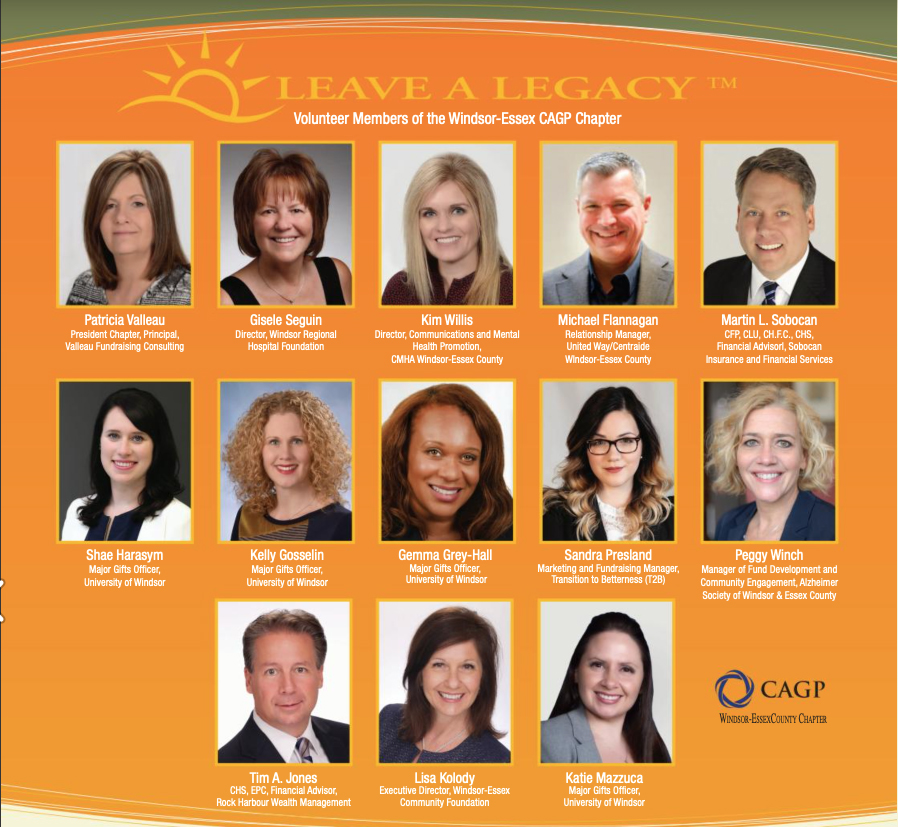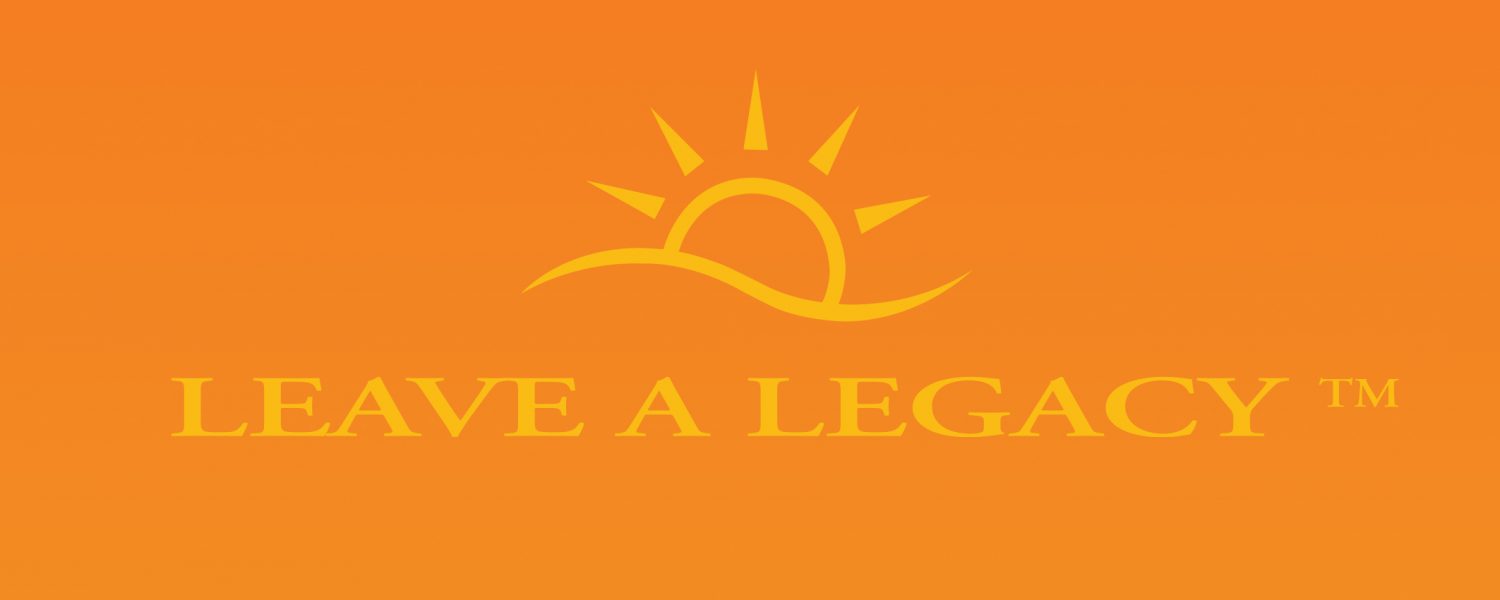With over 85,000 non-profits and donations totalling over $15 billion, philanthropy is a big business in Canada. According to Imagine Canada, the charitable and non-profit sector represents 8.1% of Canada’s GDP and 10.5% of the labour force.
By an early age, most Canadians have participated in some form of philanthropy. Whether it is a bake sale, car wash or bowl-a-thon, we have a desire to improve the community in which we live.
The Canadian tax system is grounded in an unspoken social policy that we all must contribute to society. It is a concept that highly values the social contribution of charities.
While many are familiar with the more traditional forms of philanthropy, legacy giving allows donors to realize tax savings and make a gift that will greatly impact an organization. Legacy giving is something that many people do not consider when creating a will. In fact, a large number of Canadian individuals do not even have a will.
The month of May provides an opportunity to bring awareness about the possibilities of making a legacy gift to charity. LEAVE A LEGACY™ is a national public awareness program that runs throughout May. This program encourages Canadians from all walks of life to make gifts through a will, life insurance, or other gift-planning instruments to the charitable organizations of their choice.
The LEAVE A LEGACY™ program is one of the Canadian Association of Gift Planners (CAGP-ACPDP) collaborative efforts to join donors, charities, not-for-profits and professional advisors. The program has 19 local Canadian organizations that operate under the CAGP-ACPDP.
“LEAVE A LEGACY™ month provides an opportunity to bring awareness to the importance of making a will. It also allows provides educations regarding leaving a gift for charity as part of your estate plans,” says Patricia Valleau, Chair of the Windsor-Essex CAGP Chapter.

Leaving a gift in a will to charity turns the ordinary Canadian into an extraordinary philanthropist. Yet only 5% of Canadians do this. In light of the COVID19 pandemic, it may seem like an inopportune time to think about legacy giving. In fact, the opposite is true. One outcome of the virus is that an increased number of Canadians have written, or re-written, their wills. LEAVE A LEGACY™ month provides an opportunity to educate individuals and families on how they can make a lasting impact on their communities. The WindsorEssex Community Foundation (WECF) has a strong history of giving. Many local charities have started their legacy giving programs by establishing endowments at WECF. An endowment fund allows charities to plan for the future by generating interest off of their investments. This can be particularly lucrative during times of uncertainty, such as the COVID19 pandemic.
In March 2020, a survey conducted by WECF noted that only 18% of charities remained open, with the other 16% closed and 64 % are working remotely with limited or remote only access to their clients. The survey also reported that the need for services increased 74%, at a time when the community was struggling the most. Charities have adapted and are continuing to find new and innovative solutions for supporting their vulnerable populations.
The community has responded by donating food, time and money; these donations are essential today as much as ever. As donors look for opportunities to assist, a legacy gift to their favourite charities is another long-term opportunity to support the mission of the organizations important to them as they respond, recover and rebuild in these challenging times.
Through the LEAVE A LEGACY™ campaign, the WECF and other organizations in Windsor-Essex are actively involved in planned giving as part of their sustainability strategy.
There are many reasons to consider a legacy gift. It’s a great way to ensure your memory lives on, acknowledge an organization that has impacted your life or the lives of those important to you. Additionally, there are financial benefits associated with charitable contributions.
A will is an effective way of gifting assets and transferring wealth to future generations. A key consideration is how debts, liabilities and taxes will affect the amount that will be left in your legacy to your family and future generations. Liabilities associated with your death, such as taxes, are unavoidable but can be mitigated. Working with your professional advisors can help you determine the best methods to give. A charitable donation tax credit can be claimed when gifts are made in your will to qualified charities. Notably, relatively new tax rules implemented provide increased flexibility to executors to apply these credits to income in the year prior to death, the year of your death or future years if your estate meets specific criteria. Although the concept of giving to a charitable organization seems straightforward, issues can arise. These may include: the organization is not recognized as a qualified charitable organization by Canada Revenue Agency; the gift does not satisfy strict requirements to constitute a gift by will; and disputes may arise amongst your family regarding their entitlement to the amount gifted to a charity from your estate. It is essential to create an estate plan with your professional advisors that encompass charitable giving and fulfills your wishes to maximize the benefit of both your community and loved ones.
It is always recommended that you speak with a financial advisor to find the best legacy giving option for you and your family.
In Summary:
There are many reasons to consider a legacy gift. It is a great way to ensure your memory lives on. It is also a way of acknowledging an organization that has impacted your
life or the lives of those important to you while helping the charity. Also, there are the financial benefits associated with charitable contributions. For some, including a charity in your will can increase the amount of money your spouse or children inherit
because it helps offset taxes.
Here are some tips to consider as you plan your legacy:
• Talk to your family about your wishes. End-of-life conversations can be
challenging but discussing your wishes ahead of time makes decisions much
easier for your loved ones after you pass away.
• Get professional advice. A financial advisor can help you explore various
legacy options to find the best fit for you and your family. Once you have
made your decisions, a lawyer can put together the nuts and bolts of a will.
For more information about LEAVE A LEGACY™ and the Windsor-Essex County Chapter of the Canadian Association of Planned Giving, contact Patricia Valleau, Chair at valleauconsulting@gmail.com
Why Leave a Legacy?
• You have the use of your assets during your lifetime.
• You can ensure that your gift is meaningful to you.
• Your estate will receive a beneficial tax receipt.
• Your gift can provide a meaningful investment to a passion you support.
Windsor-Essex CAGP Members
Patricia Valleau: Chair, Principal Valleau Fundraising Consulting
Lisa Kolody: Vice-Chair, Executive Director WindsorEssex Community Foundation
Kelly Gosselin: Major Gift Officer, University of Windsor
Katie Mazzuca: Major Gift Officer, University of Windsor
Kim Willis: Past-Chair, Director Communications & Mental Health CMHA Windsor-Essex County
Sandra Presland: Marketing & Communications, Transition to Betterness
Peggy Winch: Manager of Fund Development, Alzheimer Society Windsor & Essex County
Gemma Grey-Hall: Acting Director of Advancement, University of Windsor
Shae Harasym: Major Gift Officer, University of Windsor
Tim Jones: Financial Advisor, Rock Harbour Wealth Management Inc.
Mike Flannagan: Major Gifts Officer, United Way Centraide Windsor-Essex County
Gisele Seguin: Director of Philanthrophy Windsor Regional Hospital Foundation
Martin Sobocan: Financial Advisor, Sobocan Insurance and Financial
Where There’s A Will There’s A Way
By Tom Porter B.A., LL.B.
There is a certain satisfying sense of immortality in hoping that you will be affectionately remembered after your death in the hearts and minds of your family and friends.
With effective estate planning through the use of a Will, you can also ensure that your priorities and sense of purpose in life will continue to benefit your loved ones and your community after you are gone. You are in control and your Will can specify your exact wishes including the naming of an estate trustee, funeral arrangements, beneficiary
entitlements and gifts to your favourite charitable/community organizations. If you do not have a Will at the time of your death (an intestacy), you will have no control over
the distribution of your assets and someone (usually your spouse or one or more of your children) will need to initiate a Court action to get appointed as the estate trustee to manage and settle the estate.
Without a Will, the intestate provisions of the Succession Law Reform Act will
decide the distribution of your estate assets between your spouse and children or grandchildren. If there are no surviving spouse, children or grandchildren, the Act provides that your surviving parents, siblings or their children, or other blood relatives can become the heirs of your estate. If you have no blood relatives and die without a Will, your entire estate is inherited by the Ontario Government through the Office of The Public Trustee and Guardian. Where there is no Will, there is no provision in the Act for
donations to any charities or community organizations or any other beneficiaries even though you may have been connected with or supported these entities/individuals
during your lifetime. KEEP CONTROL. MAKE A WILL!




Add comment